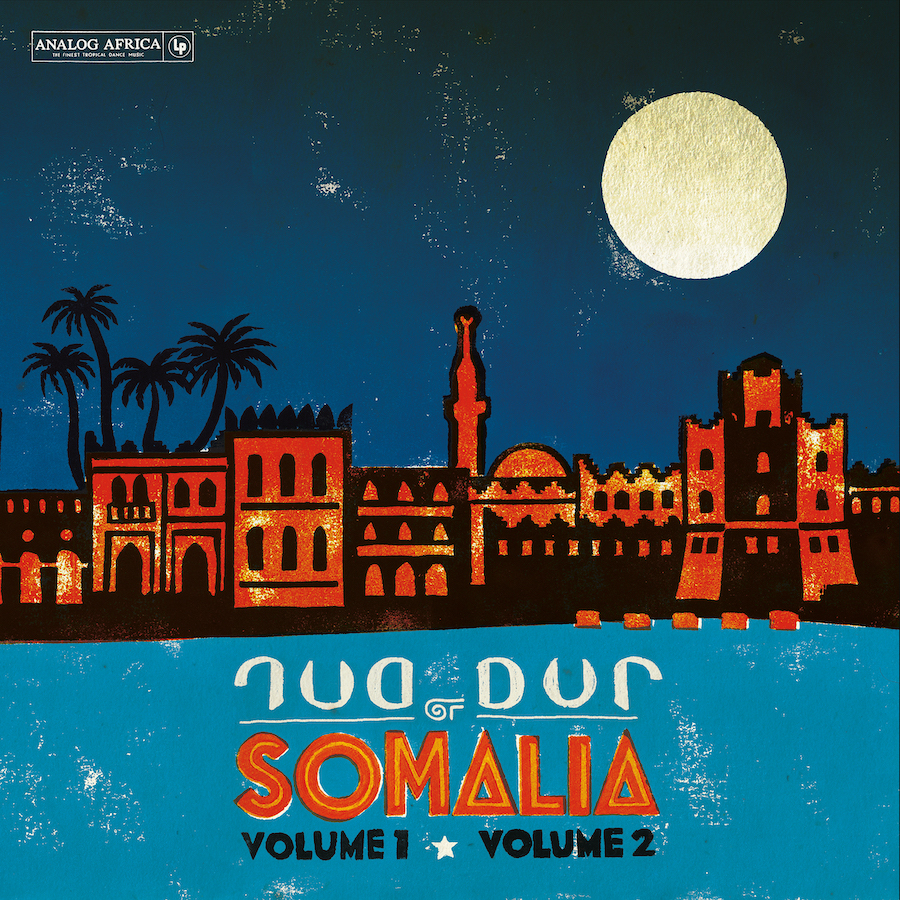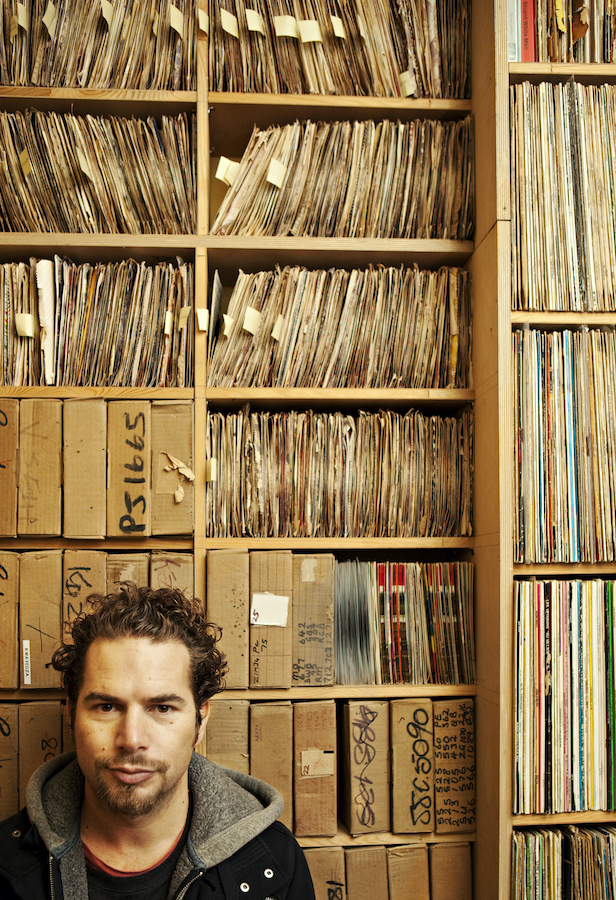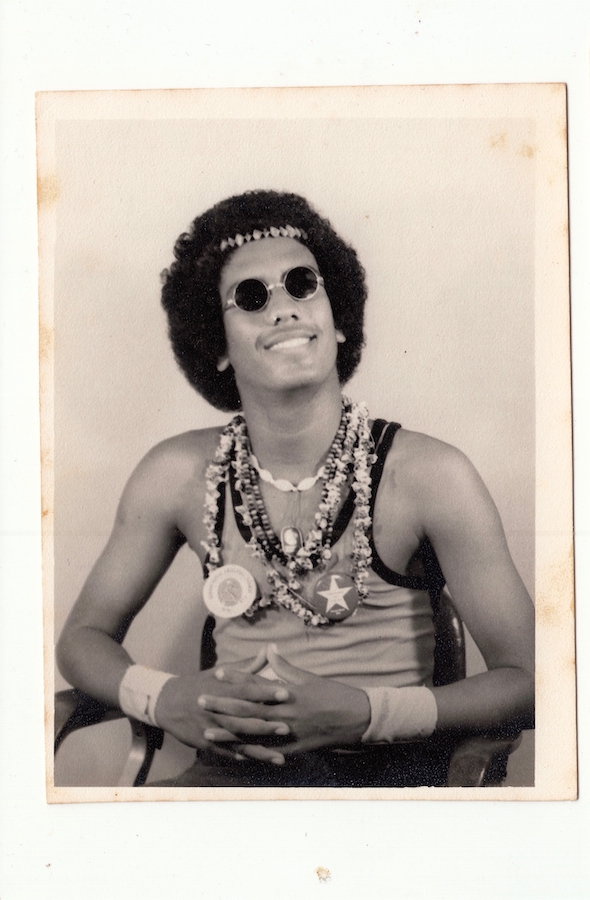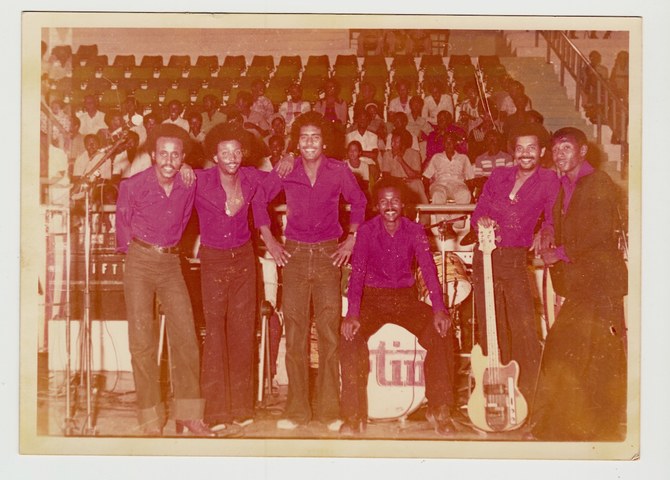MUSCAT: In the aftermath of the Ogaden War, Somalia’s Bakaka Band found themselves “somewhat meaningless,” in the words of singer Shimaali Ahmed Shimaali. Founded to sing patriotic songs by the government’s Ministry of Interior in 1978 — the height of the Somali-Ethiopian border conflict — peacetime presented a crisis of identity.
After reinventing themselves as a private party band, playing to tourists in Mogadishu’s hotels, the musicians were arrested — all because they had inadvertently chosen a new name, Gor-Gor Band, (meaning “Eagle”) that also happened to be the title of a militant group opposed to Siad Barre’s ruling regime.
As Shimaali tells it, the president had to personally intervene to get the group off the hook, ordering them instead to take the name Dur-Dur Band, and they went on to become one of the best-known groups from a golden era of Somali music that has gone largely unheard beyond the country’s borders.
Tracks by both Bakaka Band and Dur-Dur Band make up a healthy share of “Mogadisco: Dancing Mogadishu (Somalia 1972-1991),” a compilation released by the eclectic Analog Africa imprint at the end of 2019. It is more than a record, it’s a musical archaeology project accompanied by vintage photos and fresh interviews, in which Shimaali’s story is told.

Dur-Dur Band became one of the best-known groups from a golden era of Somali music that has gone largely unheard beyond the country’s borders. (Supplied)
Analog Africa’s Tunisian founder Samy Ben Redjeb tells Arab News that his visit to Somalia was the first by an international label, his efforts uncovering miraculous musical moments otherwise forgotten — such as “Hab Isii” (literally “Hug Me”) an infectiously seductive dance-floor filler driven by a stonking reggae rhythm and tropical flavor, recorded by singer Omar Shooli in 1986 — that offer a window into the culture of a country often overshadowed by its tumultuous socio-political situation.
“The thing with Somalia is that all the news you get from the country is only negative,” says the 49-year-old Redjeb. “So to imagine that this was one of the most beautiful towns in Africa and extremely rich culturally – that was basically the message I wanted to navigate through the compilation, to paint a more positive picture of that country.”
After finally obtaining a visa, invite and host for his stay, Redjeb spent five weeks in the Somali capital in late 2016, waiting each morning to be picked up by the armed guards who would take him to the dusty archives of the state’s Radio Mogadishu, where he dug through stacked boxes of hundreds of often sparsely labeled cassettes.
“I knew I was not going to come back empty-handed, that’s for sure, but I didn’t know what exactly I would find,” he says. “That’s basically my job — to go into uncharted territory and try to find music that is interesting enough to be released for an international market.”

Samy Ben Redjeb is the Tunisian founder os Analog Africa. (Supplied)
Amid the radio jingles, political speeches, background music, devotionals and theater soundtracks, he uncovered documents of the capital’s thriving ’70s and ’80s band scene, original multilingual material heavily influenced by the era’s Western disco and funk flavors, but rooted in regional Balwo musical poetry traditions, and often smattered with a Latin and Caribbean lilt. More than mere ethnography, the music he assembled for release is as fun and familiar as it is fascinating and obscure — just listen to Marvin Gaye-loving singer Mukhtar Ramadan IIdi’s primitively recorded foot-tapping “Check Up Your Head” and “Baayo.”
Collectively, the release’s 12 tracks tell the story of a period both uniquely fertile but strictly controlled. Now the subject of their own standalone Analog Africa retrospective gathered from the same visit (“Dur-Dur of Somalia – Vol. 1, Vol. 2”), Dur-Dur Band’s story is not uncommon; after assuming the presidency following the 1969 coup, President Barre invested heavily in culture, and almost every government ministry boasted its own well-funded band. “While other African countries were going down musically and culturally in the Eighties, Somalia was going up,” says Redjeb. “Ghana in the Eighties was completely dead, while Somalia was exploding just because of the political environment.”
But the Bakaka Band’s brand of patriotic music is far more than the crude jingoism associated with the genre, the languid “Godonimada” (Choose Freedom) pits lazy call-and-response tribal chants over reggae groves, while the trippy “Geesiyada Halgamayow” (Brave Fighters) bounces between slow, spooky, and furious funk passages.

The state-funded bands were frequently called on to provide live accompaniment to musical plays staged at the National Theater of Somalia. (Supplied)
When they weren’t on government duties or representing Somalia at international festivals, these incredibly versatile state-funded bands were frequently called on to provide live accompaniment to musical plays staged at the National Theater of Somalia, with The Ministry of Education’s Iftin Band contributing the eerie, sci-fi-flavored synth instrumentals “Sirmaqabe” (No Secrets) and “Ii Ooy Aniga” (Cry For Me).
With new productions staged on a monthly basis, there was a constant demand for new, audience-pleasing scores, big on singalongs, which were hastily recorded and distributed to the public prior to the production’s opening. That’s the source of the compilation’s “Waakaa Helaa” (I Like You), an imploring falsetto sung by young female singer Fadumo Qassim, backed by the legendary Shareero Band.
After these formal theater gigs, the musicians would typically pile into a minivan with their equipment to moonlight at the city’s higher-end hotels, playing Michael Jackson or Tracey Chapman hits to a mix of Italian tourists and moneyed locals. When the revellers went home in the early hours, the bands would often stick around until dawn, writing and recording DIY cassettes of their own original music away from the demands of dancers and the pressures of politics.
“You couldn’t be totally independent, you always had a toe in politics, because you were a voice and the government would use that voice whenever they wanted,” warns Redjeb. “You might be independent, but when they called you, you had to be there.”























